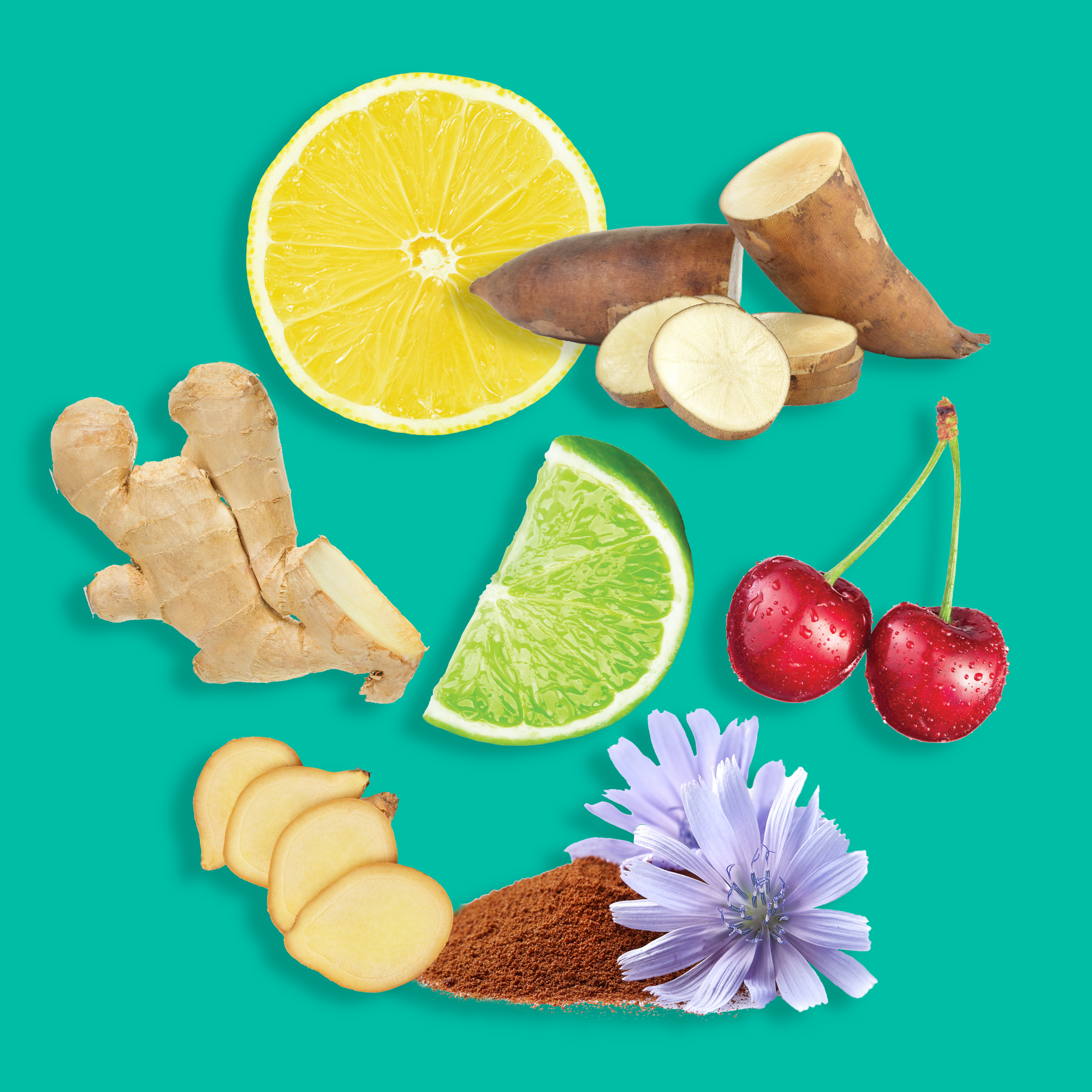Baobab Fruit Powder
Naturally low in sugar and high in prebiotic fibre and amino acids (the building blocks of the body), baobab fruit contains more Vit C than most other fruits, and is a good source of calcium, iron and magnesium. This super fruit is packed with probiotics, antioxidants, anti inflammatories and helps moderate sugar in the body, making it safe for diabetics. Used traditionally to treat fevers, indigestion/diarrhea, heavy sweating, inflammation, pain, and to increase immune system activity, and good gut bacteria (probiotics)[4], we couldn’t resist adding it’s superpower potential to our sparkling prebiotic drinks.
Key benefits: Antioxidant activity, hepatoprotective effect, cardioprotective, antidiabetic, and antitumor action







